-
- Market Research
- |
- CBD Near Me
- |
- Giveaways
- |
- Newsletter
- |
- Contact
- |
- Advertise
- |

Anxiety affects all people occasionally, but some experience chronic and debilitating worry without a means to control it. Thankfully, a 2017 review of research by scientists from the UK and Brazil on cannabidiol (CBD) suggests CBD’s anxiolytic (anti-anxiety) effects and regulation of memory processes can be beneficial in treating anxiety disorders. As the research indicates, CBD is a novel, viable therapy that may significantly improve the quality of life in people with intense anxiety.
Overview of Anxiety
Chronic anxiety is the most common mental illness in the United States.
According to Anxiety.org, a site offering information from medical professionals on anxiety, over 40 million US adults have some form of anxiety disorder, and forty percent of adults in the nation will experience an anxiety disorder at some point in their lives.
Forms of Anxiety Disorder
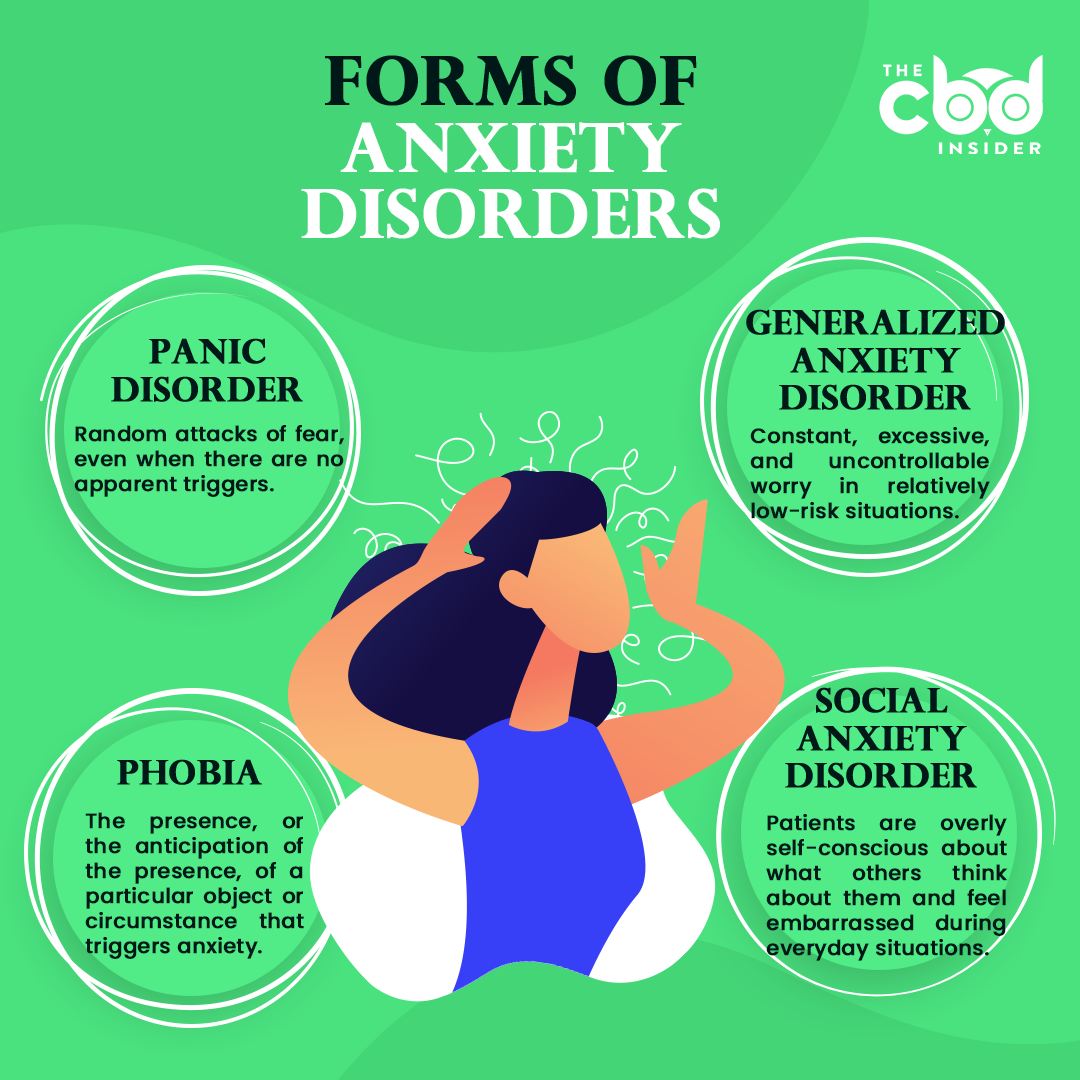
Anxiety disorder is a mental illness with several manifestations.
Common forms of anxiety disorders include:
- Generalized anxiety disorder
- Social anxiety disorder
- Panic disorder
- Phobias
Anxiety can also be a symptom of other disorders, such as post-traumatic stress disorder and obsessive-compulsive disorder.
Generalized Anxiety Disorder
Constant, excessive, and uncontrollable worry are the hallmarks of generalized anxiety disorder (GAD).
Those with GAD usually display disproportionate amounts of worry about situations with relatively low risk.
GAD patients often lack a rational basis for their worry.
Symptoms of this disorder include constant fatigue, nausea (“butterflies in the stomach”), difficulty sleeping, muscle aches, and feeling on edge.
Social Anxiety Disorder
Social anxiety patients are overly self-conscious about what others think about them and feel embarrassed during everyday situations.
Symptoms include irrational fear and worry of a particular social situation, fear of social settings, avoidance of social scenes, and a recognition that their fear is irrational.
Panic Disorder
People with panic disorder experience random attacks of fear, even when there are no apparent triggers.
Symptoms of panic disorder include sweating, feeling faint or dizzy, shortness of breath, heart pounding, fearing death or physical harm, and avoidance of places where previous panic attacks have occurred.
Phobias
A person has a phobia when the presence—or the anticipation of the presence—of a particular object or circumstance triggers anxiety or a panic attack.
Symptoms are avoidance of the subject of the phobia, intense anxiety if enduring the phobia, and interference of daily life because of the phobia.
How Anxiety Works
Although our understanding of the development of anxiety is limited, scientists seem to have a general idea of how events in the brain lead to anxiety disorders.
Pathophysiology of Anxiety
Anxiety seems to begin in the amygdala, a pair of neuron clusters at the base of the brain.
As an anxiety disorder develops, the amygdala is thought to receive too many signals, becoming hyperactive.
Stimulation of the amygdala triggers the sympathetic nervous system, which is responsible for the fight-or-flight response.
The sympathetic nervous system carries out this response by triggering the adrenal glands to release adrenaline, causing an adrenaline rush.
When the adrenaline rush is over, the individual will experience a crash, feeling tired and unhappy.
With an overactive amygdala, the fight-or-flight response will be triggered continuously, ultimately leading to exhaustion and possible depression.
The amygdala is also connected to the prefrontal cortex of the brain, which is responsible for storing memories and thoughts about those memories.
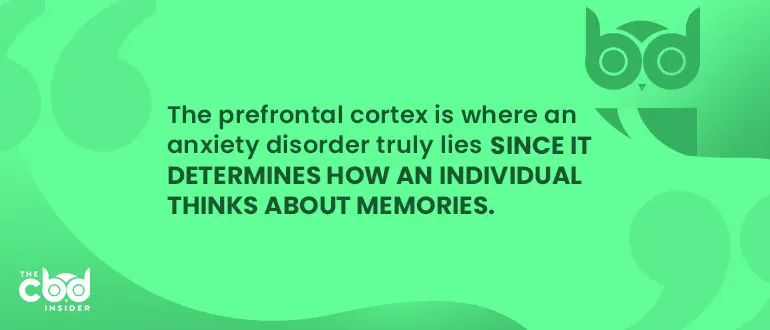
The prefrontal cortex is where an anxiety disorder truly lies since it determines how an individual thinks about memories, and triggers the physiological response from the amygdala.
Deficiency in neurotransmitters, such as dopamine and serotonin, and endocannabinoids like anandamide may also contribute to the development of anxiety symptoms.
Cause of Anxiety Disorders
The cause of the development of anxiety disorders is unknown.
However, genetic factors and learned responses from personal experiences seem to be significant contributors.
Medication for Anxiety Disorders
Medication may help treat anxiety disorders.
Antidepressants are the most common form of medication for anxiety disorders, such as Cymbalta and Lexapro.
Both Cymbalta and Lexapro are selective serotonin reuptake inhibitors, meaning they prevent the absorption of serotonin to make it more available.
Serotonin is a neurotransmitter that is believed to help regulate mood and social behavior, which is why serotonin deficiencies have been linked to anxiety.
Cymbalta is also a norepinephrine reuptake inhibitor.
Norepinephrine is another neurotransmitter that may boost mood and is released in response to stress.
Side Effects of Anxiety Medication
Anxiety medications carry dangerous potential side effects such as:
- Increased risk of suicide
- Nausea
- Vomiting
- Rigid muscles
- Tremors
- Hallucinations
- Memory problems
- Withdrawal symptoms after ending medication use
Medication can add several complications on top of an anxiety disorder, which can make overcoming anxiety more difficult.
On the other hand, as the following studies indicate, CBD is not only a viable treatment for anxiety but also has relatively minor side effects, if any at all.
Studies on CBD for Anxiety
| CBD | BACKGROUND | RESULTS |
| Review of Cannabidiol as Anxiolytic | Scientists reviewed scientific literature from animal and human studies about the effects of CBD as a therapy for anxiety. | CBD was suggested to be a potential therapy for panic disorders, post-traumatic stress disorder, and social anxiety. |
| Study Treats Social Anxiety Disorder Patients with CBD | Social anxiety disorder patients took CBD or a placebo before performing a simulated public speaking scenario test. | CBD significally reduced anxiety and discomfort in patients over the placebo. |
| Study on CBD and Chronically Stressed Mice | Mice were chronically stressed for 14 days and given 30 mg of CBD two hours after each daily stressor. | CBD enhanced anandamide levels, which decreased anxiety and promoted growth of the hippocampus (a small hippocampus has been linked to anxiety disorders). |
| Review of CBD and Emotional Memory Processing | Researchers reviewed CBD’s ability to regulate memory processing in relation to fear and anxiety. | Researchers concluded CBD could enhance fear memory extinction, making it useful in therapy for PTSD and phobias. |
The research on CBD shows promising results for the treatment of anxiety.
CBD has been shown to reduce anxious behaviors and promote calmness, which can be helpful in people prone to anxiety attacks.
Researchers also demonstrate CBD can improve the ability to function in social situations (e.g., public speaking) for patients with social anxiety and provide stress relief by enhancing an individual’s mood or helping them forget anxiety-inducing memories.
The following studies showcase these benefits of CBD for anxiety:
CBD as an Anxiolytic Therapy
Brazilian researchers from the Federal University of Rio de Janeiro, the Federal Fluminense University, the University of São Paulo, and the National Institute for Translational Medicine reviewed scientific literature from animal and human studies about the effects of CBD as a therapy for anxiety.
In the animal studies, the researchers found that CBD seems to produce its anxiolytic effects through receptors in the serotonergic system.
These receptors are the same target of some anxiety medications, but CBD appears to be effective longer with fewer potential side effects.
CBD was also suggested to be potentially useful in panic disorders via observation of reduced panic responses in mice when introduced to a predator, and in treating post-traumatic stress disorder as CBD was found to reduce contextual fear.
In human studies, CBD was effective at treating social anxiety in many contexts, and produced anxiolytic effects by altering the prefrontal cortex through the amygdala.
CBD Reduces Anxious Behaviors in Patients With Social Anxiety
Researchers from the Department of Neuroscience and Behavior at the University of São Paulo in Brazil conducted a study on CBD for social anxiety disorder.
The researchers used a simulated public speaking scenario test for this study.
Participants consisted of 24 social anxiety disorder (SAD) patients and 12 healthy patients.
The SAD patients were split into two groups, one receiving 600 mg of CBD and the other a placebo.
The healthy patients received no treatment.
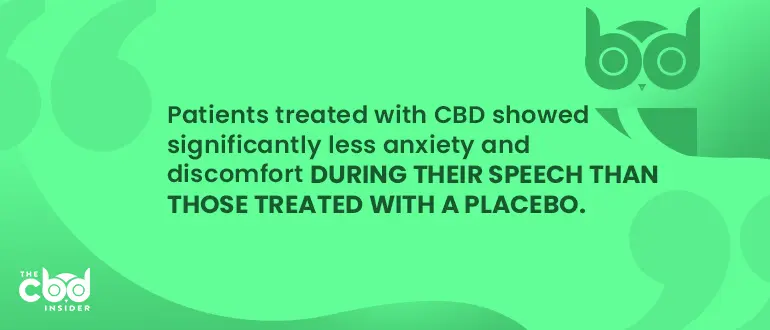
The results showed that patients treated with CBD showed significantly less anxiety and discomfort during their speech than those treated with a placebo.
The patients taking CBD also performed similarly to the healthy patients.
The Effect of CBD on Chronic Stress
A 2013 study by the Department of Pharmacology at the University of São Paulo tested how CBD affects the hippocampus as it produced anxiolytic effects in chronically stressed mice.
Mice were chronically stressed for 14 days and given 30 mg of CBD two hours after each daily stressor.
The results showed that CBD could promote the growth of new neurons in the hippocampus.
CBD also activated the CB1 receptor in the endocannabinoid system by enhancing anandamide levels in the hippocampus, which was responsible for reducing anxiety in the mice.
These findings revealed that CBD can promote the growth of the hippocampus (a small hippocampus has been linked with patients who have anxiety disorders) and that the endocannabinoid system is involved in anxiety.
CBD May Help PTSD and Phobia Patients via Fear Memory Processing
British and Brazilian researchers conducted a review of literature that discussed CBD’s ability to regulate fear memory processing, helping relieve fear and anxiety.
The researchers note numerous studies that indicate CBD can reduce the expression and response to fearful memories, and may also impair fear learning (associating neutral contexts or stimuli with an adverse effect).
The review also found studies that revealed CBD could enhance the extinction and disrupt the reconsolidation (retrieval of stored memories) of fear memories.
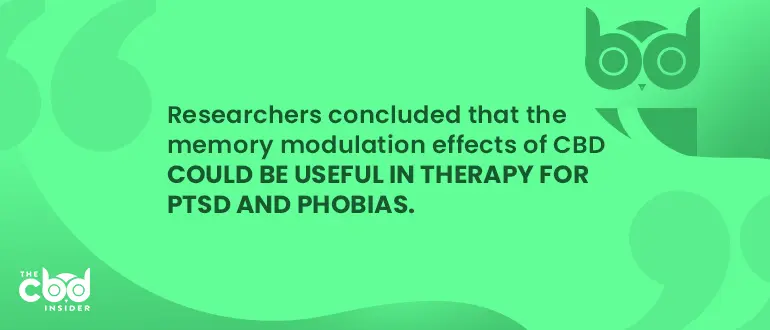
Researchers concluded that the memory modulation effects of CBD could be useful in therapy for PTSD and phobias.
How CBD Treats Anxiety
CBD has several possible benefits for anxiety disorders, ranging from social anxiety disorder to phobias.
Some of these benefits include boosting serotonin, reversing endocannabinoid deficiency, promoting the growth of the hippocampus, and inhibiting fear memories.
CBD Boosts Serotonin
Since serotonin is a neurotransmitter that seems to modulate mood and social behavior, this has been a therapeutic target for anxiety medication.
These medications (i.e., selective serotonin reuptake inhibitors) boost serotonin levels by hindering its absorption, allowing its effects to last longer.
CBD has been shown to boost serotonin by targeting receptor 5-HT1A in the serotonergic system, indicating CBD also acts as a selective serotonin reuptake inhibitor.
Serotonin deficiency is thought to be a significant contributor to obsessive-compulsive disorder (OCD), another type of anxiety disorder.
In a study by the University of São Paulo, researchers tested CBD’s effects on OCD in mice using the marble-burying test, an animal model for OCD behavior.
CBD significantly reduced the compulsive behavior, and its effects also outlasted the medication diazepam.
These findings support CBD as a potential treatment for OCD.
CBD Reverses Endocannabinoid Deficiency
The endocannabinoid system helps maintain homeostasis in many bodily functions, including anxiety and mood.
According to a study conducted by the Vanderbilt University Medical Center, the endocannabinoid anandamide plays a major role in anxiety symptoms.
This study showed that an increase in anandamide in chronically stressed mice reduced anxiety-like behaviors, while anandamide deficiency heightened anxiety.
Thus, anandamide deficiency may be responsible for some stress-induced anxiety disorders.
CBD has been shown to improve anxiety by promoting anandamide levels in the brain.
CBD does this by inhibiting anandamide’s enzyme, fatty acid amide hydrolase, allowing it to last longer in the brain.
Anandamide then binds with CB1 receptors (which help regulate mood and behavior) to reduce anxiety.
CBD Promotes Growth of the Hippocampus
The hippocampus is a part of the brain responsible for emotion and memory and is consequently of substantial interest in the study of anxiety disorders.
Parallels have been made between the size of the hippocampus and anxiety disorders, including their severity.
In a study conducted by researchers from universities in Germany and Switzerland, 24 patients with generalized social phobia were found to have eight percent smaller hippocampal sizes than the 24 healthy patients.
A negative correlation was also found between small hippocampal size and the severity of a patient’s social phobia.
This study also noted other studies that showed why anxiety patients might have small hippocampal sizes.
Some theories include excess glutamate toxicity leads to hippocampal degeneration or that the activation of specific glutamate receptors may inhibit hippocampal neurogenesis (the birth and growth of new neurons).
In contrast, according to a 2013 study by the University of São Paulo, CBD promotes hippocampal neurogenesis.
One way in which CBD promotes neurogenesis in the hippocampus is through enhancing anandamide levels.
Another way is through the activation of the CB1 and CB2 receptors, which CBD does indirectly by inhibiting fatty acid amide hydrolase, the enzyme which breaks down anandamide.
CBD has also been known to inhibit glutamate production, potentially preventing the degeneration of the hippocampus.
These findings show CBD may be able to reverse degeneration and promote hippocampal growth.
CBD Reduces Fear Memories and Fear Response
Fear memories are major contributors to PTSD and phobias.
These memories can elicit physiological responses such as anxiety and other negative symptoms.
Thus, reducing the recall and enhancing the extinction of these memories can relieve symptoms of PTSD and phobia.
Fear memories are created when an individual or animal associates an adverse stimulus
(e.g., pain or negative experience) with a neutral context (e.g., room or location) or stimulus (e.g., smell or sound), leading to a fear response.
The process of reconsolidation (retrieving memories after receiving a memory trace, or reminder) can continually evoke fear responses, solidifying fear memories.
However, prolonged exposure to the neutral context or stimulus with no adverse effect present can lead to the extinction of the initial fear memory by creating new associations with the neutral element.
Reducing fear responses through enhancing the extinction and disrupting the reconsolidation of fear memories is a promising therapy for disorders like PTSD and phobias.
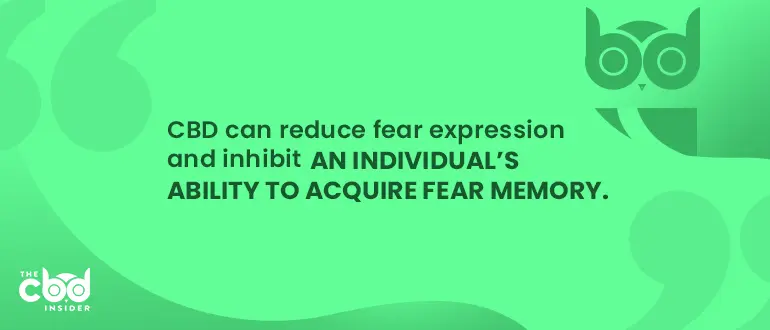
CBD has been found to reduce fear expression and inhibit an individual’s ability to acquire fear memory. CBD accomplishes both these effects by activating the 5-HT1A receptors.
However, extinction and disruption of fear memory reconsolidation involve activation of the endocannabinoid system at the CB1 receptors.
CBD activates these receptors indirectly by enhancing anandamide levels in the brain.
CBD Is a Viable Anxiety Treatment
As the abundance of scientific research demonstrates, CBD is a viable treatment for anxiety.
CBD’s therapeutic properties may help treat a wide variety of disorders such as social anxiety, panic attacks, PTSD, OCD, phobias, and perhaps more.
From reversing neurotransmitter and endocannabinoid deficiencies to inhibiting fear memories, CBD has the potential to do a lot of good for anxiety patients, helping them live with less fear and more confidence.
Have you or a loved one used CBD for anxiety? What results did you find? Share your experience in the comments below!
Disclaimer: The content on this site is for informational purposes only. We are not medical experts and nothing should be construed as medical advice. Be sure to speak with your physician before taking CBD or any other treatment.


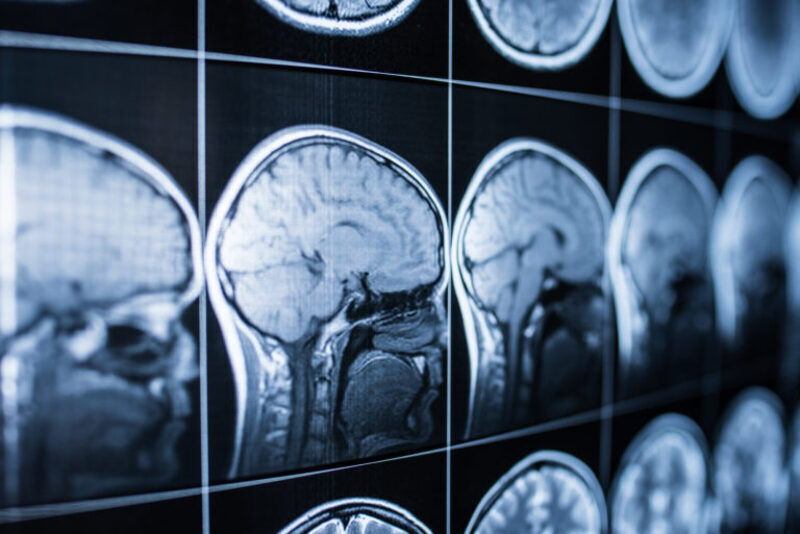
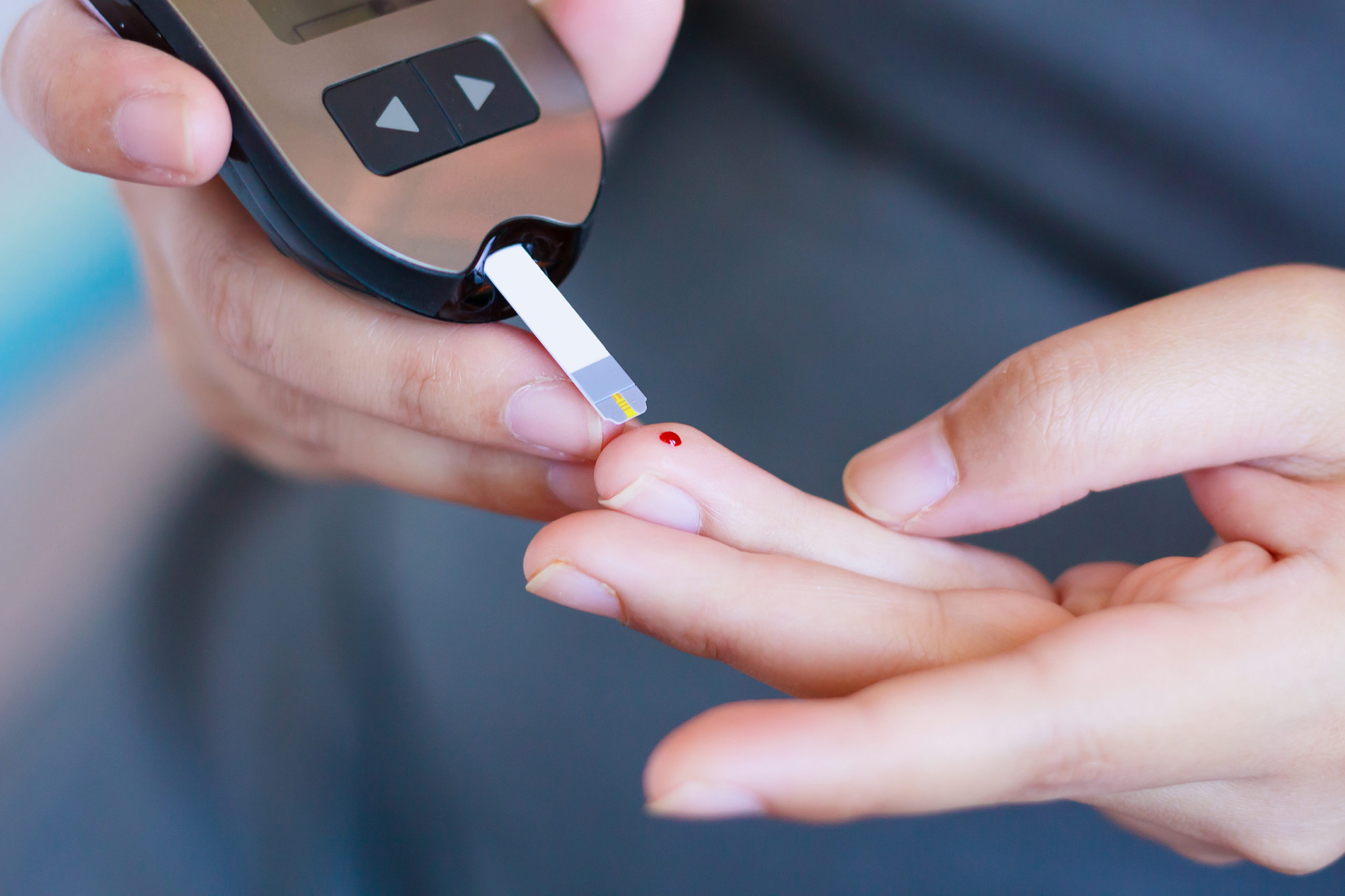
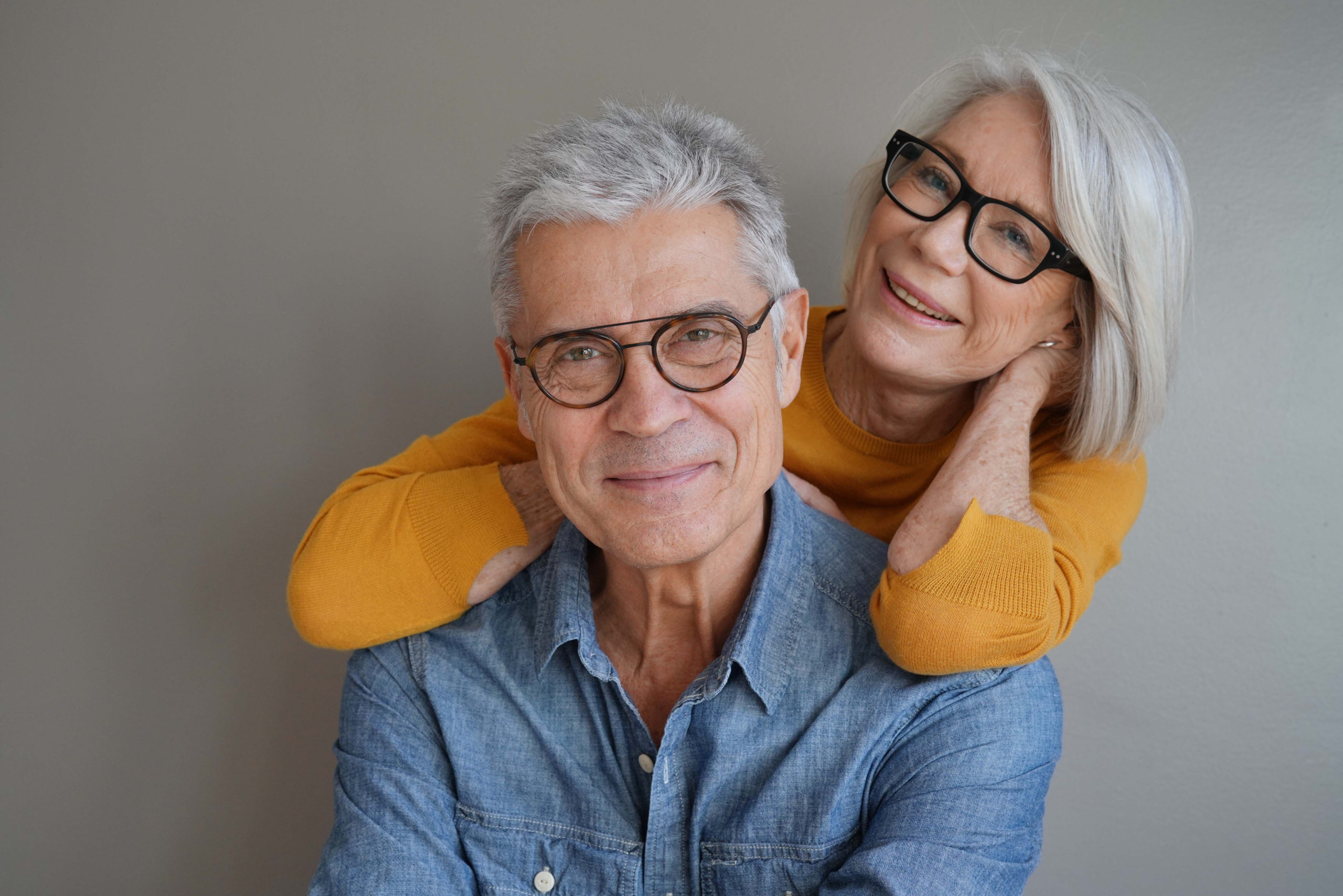

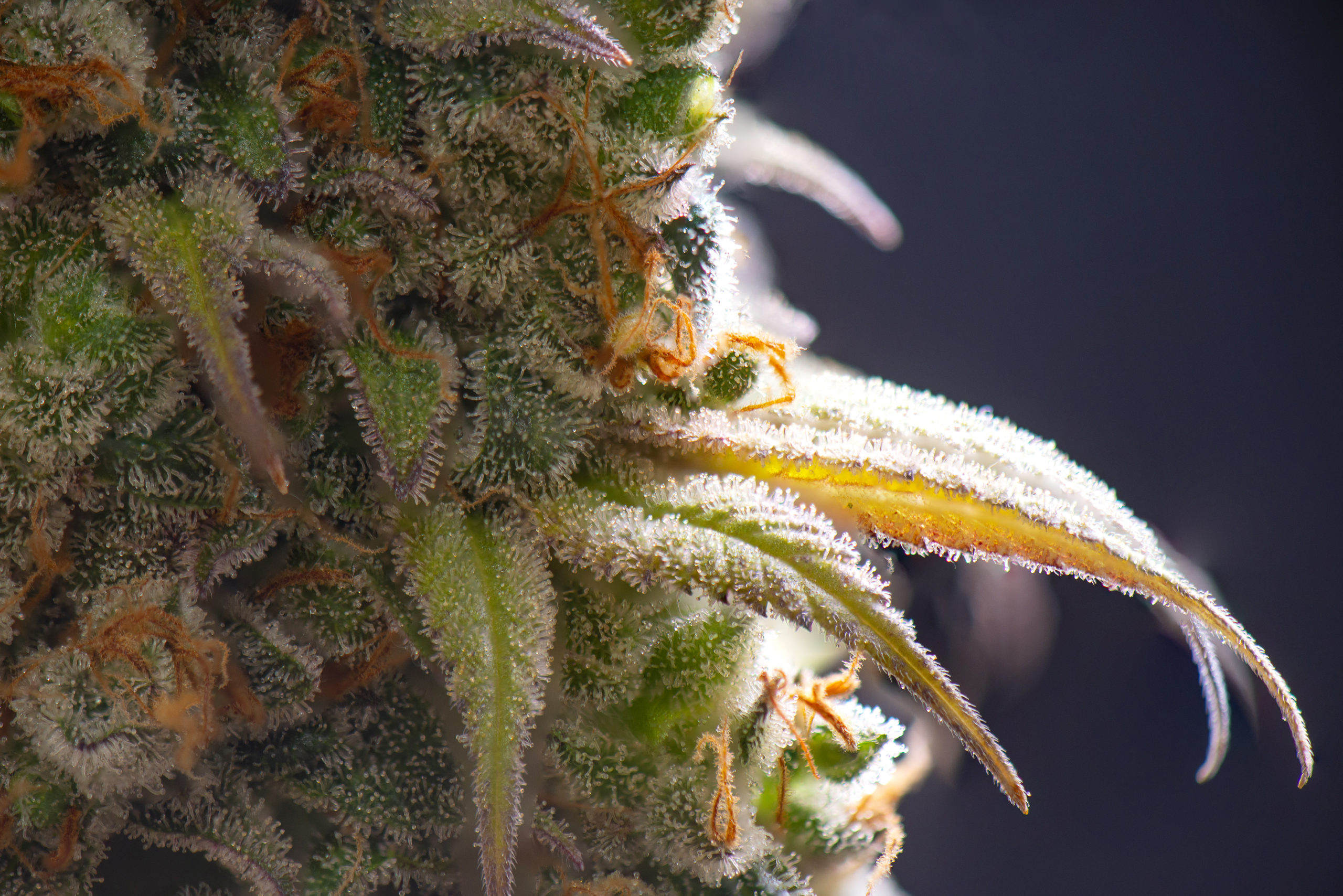
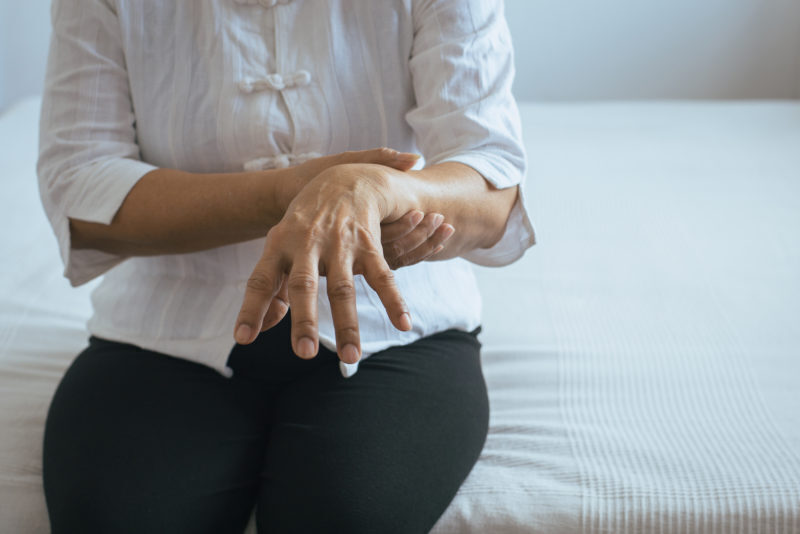
1 Comment
Cannabis now can be the next Alternative medicine that can relief pains, lessen the seizures and can be infused in your dishes, I tried frozen yogurt infused cannabis before and it really tastes good! and now, there’s new and something interesting!